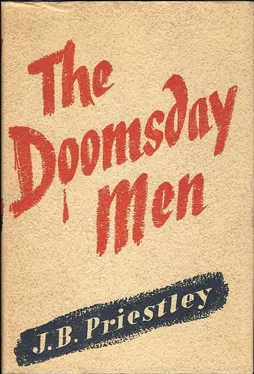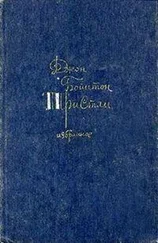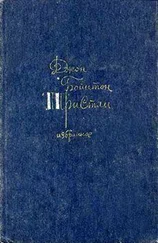They lost the first set, by two games to six, and Malcolm felt that it had been his fault. Not enough good tennis, and too many glances across at his partner to see if at this last minute she was coming to life. That is, coming to life as a girl, not as a tennis partner, for she was playing better than he was.
“Sorry, my fault!” he said, during the break and the buzz of talk from the stand.
She nodded, not reproachfully. “We’ve time. Grendel isn’t so tough. He’s going to tire soon.”
This burst of conversation from her, about the longest she had given him, filled him with delight. “Yes, Grendel soon tires, though he can come up again at times. But that Tissot woman is terrible. She’s all steel and rubber. We’ll never wear her down. But we’ll snatch this set, and then wear Grendel out.” He could have gone on in this vein, but she nodded again, as if to dismiss him, and now they had to open the second set. It was Malcolm’s service, and he put into it all his feeling of angry frustration. Twice he aced Madame Tissot; Grendel sent one flying out, and his other return, a more cautious drive, was cut short by Andrea with a neat little stop volley, one of her favourite shots. “But the trouble is,” Malcolm said to himself, with a certain gloomy satisfaction, “she’s stop-volleyed me too.”
With the first game against him, Grendel now squared his massive shoulders, swept back his dripping mane of hair, and launched his thunderbolts, making it game all. The next game went to the Anglo-American pair, for Andrea served accurately, if not very fast, and Malcolm was able to kill three returns at the net. Madame Tissot lost her service, chiefly because her opponents directed their returns away from the mighty Grendel at the net, sending them short as well as obliquely, and though the Frenchwoman was like Verdun itself when she was on the base-line, she did not move quickly up to the net. Malcolm served again, with the set three-one in their favour, and again got the game, but only after a long struggle. Grendel now entered one of his berserk spells, went roaring about the court, served and smashed as if the fate of Prague depended upon him, and won his own service and Andrea’s as well, making the score only four-three in favour of the Anglo-American partnership. It was now that Malcolm began lobbing against Grendel, to wear out that giant. It was a dangerous policy, for Grendel’s smash was terrific and he could hurl his two hundred pound bulk up into the air, to cut short a lob, like an over-size ballet dancer; but it was worth trying, especially as Grendel now began to sweep back his wet mane every minute or so, and his heavy breathing could be heard across the court. That game, with Madame Tissot serving, the lobbing did not work, for Grendel jumped and smashed down the first lob Malcolm sent him, and ran back and returned the second with a piercing forehand drive that almost knocked the racket out of Andrea’s hand. Four all. Malcolm’s service. But this time, instead of serving hard to Grendel, he gave him two slow soft ones, both of which Grendel bungled; but he served as hard as he could against Madame Tissot, who would have had no mercy upon any soft stuff. Five-four, and now Grendel’s service. Grendel made all the usual preparations for going berserk, and it looked as if his flashing racket would be murderous in its service; and so it was for the first two services, which could hardly be seen; but then, tiring rapidly, he double-faulted twice, making the game thirty-all, followed that by wildly driving a return of Andrea’s out of court, and finally smashed a lob of Malcolm’s into the net. So the second set went to Baker-Darbyshire at six-four, making the match set-all.
Before they began the final set, Miss Andrea Baker, now an entrancing figure of warm gold, nearly came to life. She looked at Malcolm with those astonishing eyes, in which there was now just the faintest trace of warmth-as if at least a match or two had been struck somewhere in those caverns, even if no fires had yet been lighted-and said to him, in what amounted with her to tones of the most delicious intimacy: “Can we do it, Mr. Darbyshire?” His name too, though of course with the chill Mister attached to it! She was almost human.
“Yes, we can do it. Concentrate on Madame Tissot. Either smack ’em hard at her, or drop ’em short-she can’t run. And I’m going to keep on lobbing Grendel. I know it’s risky, but I’ll have him running miles, and he’s tiring fast. We’ll pull it off all right.” He sounded more confident than he felt, but, dash it, when the girl was coming to life, right at the last minute, he couldn’t appear dubious. He gave her his broadest, friendliest grin yet.
Then she did a curious thing, which he was never to forget. The little light there was died out of her face, not leaving it composed, reserved, almost frozen, as it had been so often, but giving it an unexpected air of melancholy, almost wistful sadness; and she looked around, taking in all the court, the stand and the thin line of spectators at each side, the other courts, the hotel, the hills and the mountains beyond, the whole landscape, it seemed, the whole fading and chilling gold of the afternoon, just as if she were looking at all these things for the last time; and then she turned to him, as if at last in this moment he was a real person to her, and said quietly, rather sadly: “I’d give anything to win this match. I don’t think there’ll be another for me.”
Now that she had said something personal to him, he could only stare and stutter, for he was completely taken by surprise, by dismay, too, a score of fantastic tragic speculations about her leaping into his mind and conflicting there. What on earth did she mean? And why, after being so frozen, was she suddenly, at this place and time, not only coming to life, but being disturbingly tragic about it? And whatever it was, he was sure, there was no affectation there. She was not talking for effect. On the contrary, she was giving him a glimpse, the merest hint, of her real self, which she had kept so carefully tucked away. And now of course there was no time even to ask a sensible question. The umpire was calling from his high chair; the spectators were settling down, and turning curious glances their way; the final set must be played.
But he had time to look her straight in the eyes-and what eyes!-and mutter with awkward sincerity: “It’s all right. We’ll do it.”
That final set was the best game of tennis Malcolm Darbyshire ever played. He stopped worrying about the girl now, and concentrated entirely upon the game. Grendel and Madame Tissot were no longer two pleasant fellow-creatures, with whom he had exchanged cigarettes and stories and cold drinks in the Bristol; they were menacing monsters, one small, female, cold, infinitely cunning, the other a man-eating giant, roaring destruction and doom. The court was the whole world, and the adventures of the great white balls upon it were his whole destiny. He sent fast top-spinning drives to Madame Tissot’s feet, and killed the slow half-volleys she returned. Grendel he lobbed, and went on lobbing, sometimes chasing the giant’s tremendous smashes far out of court; and did not even hear the applause that followed him. He served with a fierce despair, as if trying to turn himself into another giant, and he banged away hell-for-leather at Grendel’s terrific services, sometimes throwing the point away, but at others scoring glorious winners. But most of the time-and it was not ordinary time but the years of an epic struggle-Grendel seemed to be smashing and he seemed to be lobbing. Andrea was playing well, but she had not the cold, almost venomous concentration of the Frenchwoman; and Malcolm could not pretend to equal Grendel’s colossal strength. They arrived at five-all, and it was anybody’s match.
Читать дальше









